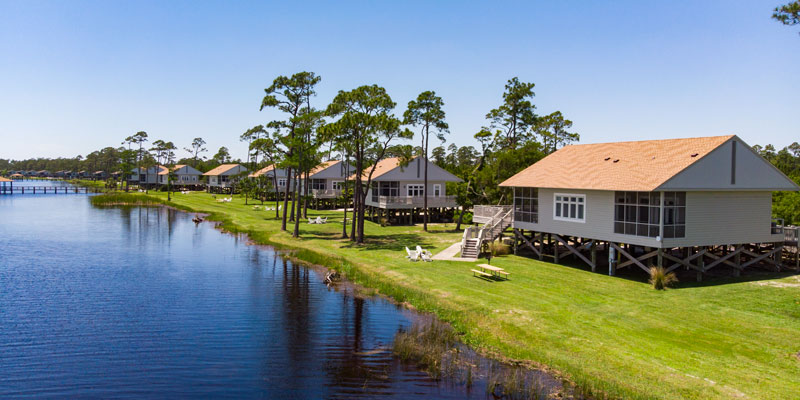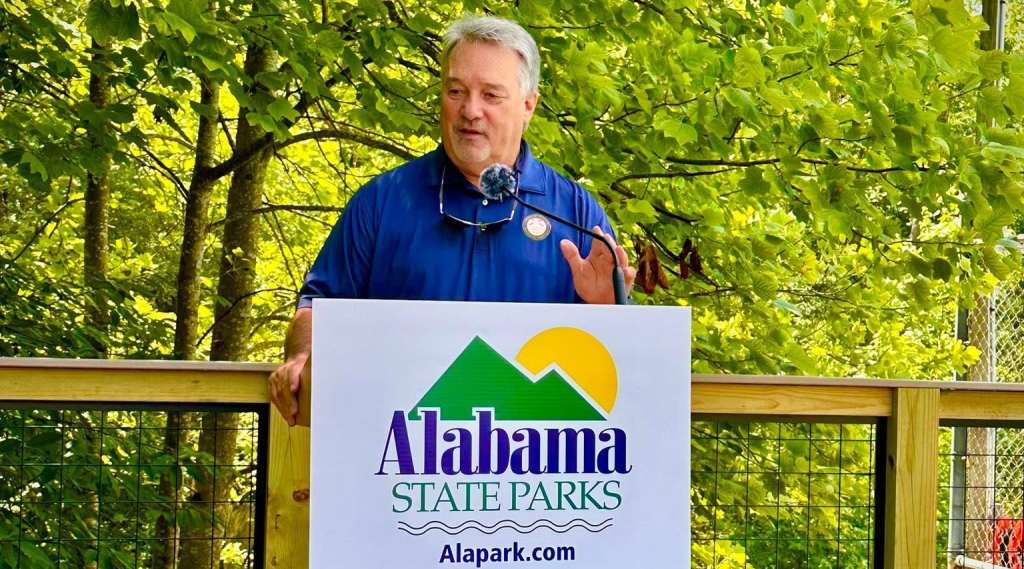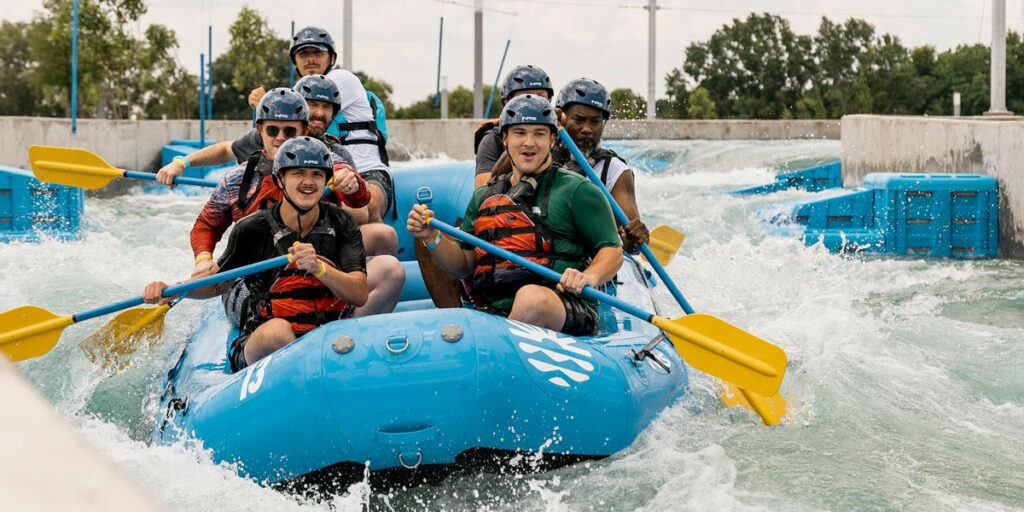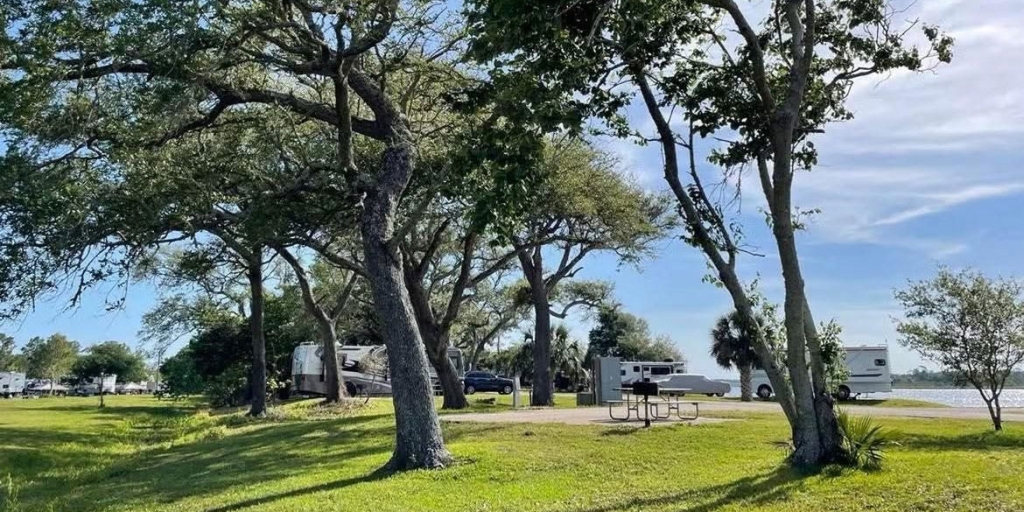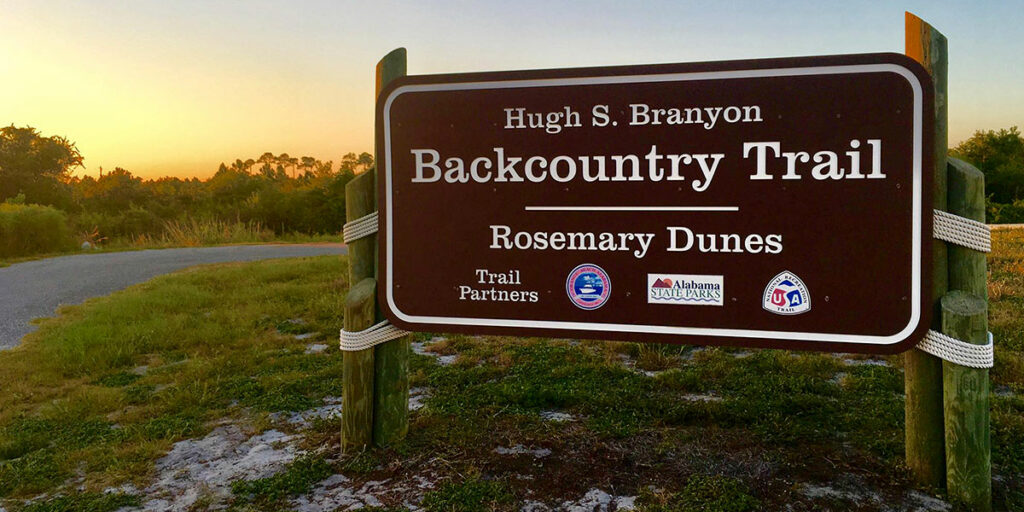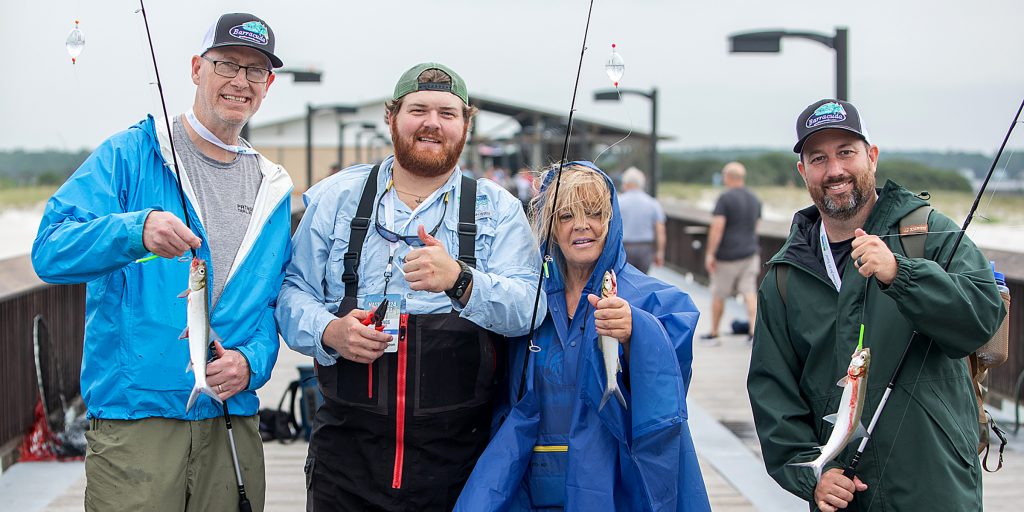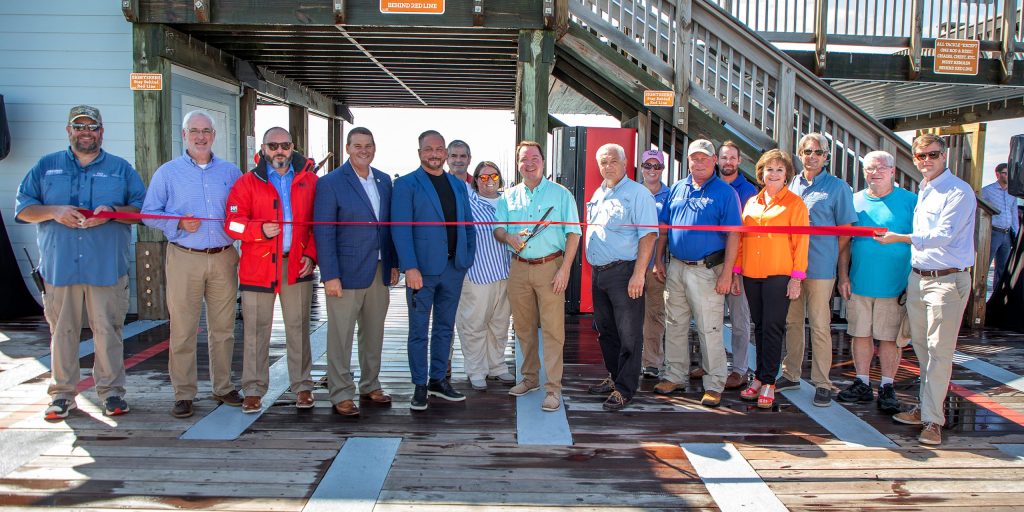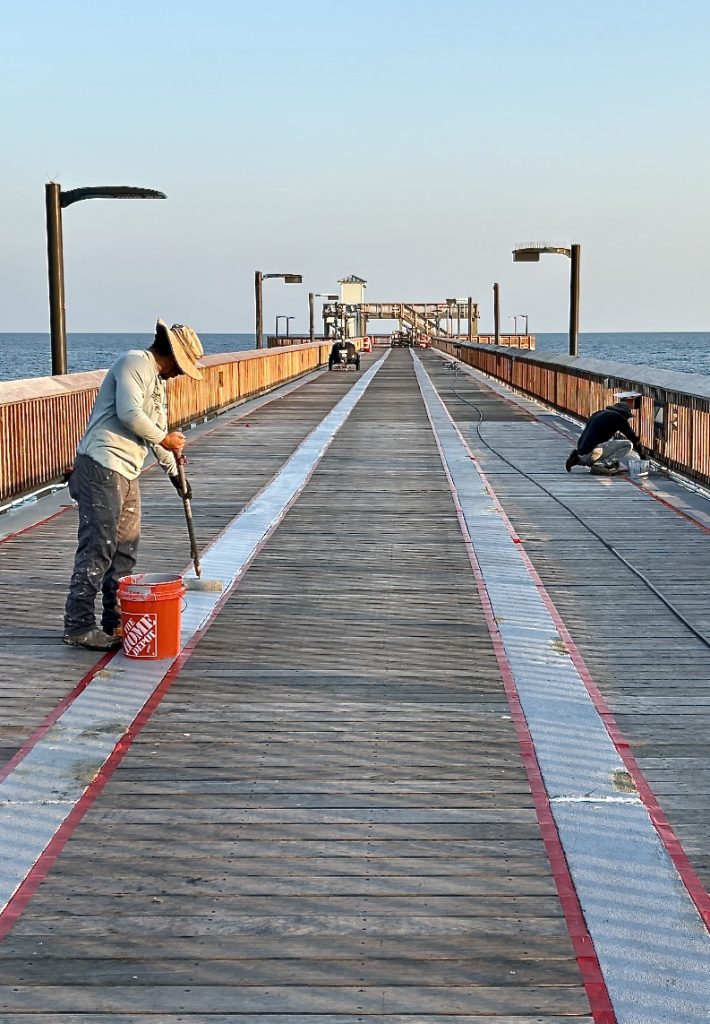Already a beacon of sustainability, education and eco-tourism, Alabama’s Gulf State Park is again at the forefront of providing visitors with much more than the traditional “toes in the sand” experience.
In fact, the ultimate compliment has been bestowed on Gulf State Park’s Eagle Cottages by National Geographic with a Unique Lodges of the World designation, the only such recognition for any facility east of the Rocky Mountains in the U.S.
The Unique Lodges program is a highly selective process. Only 56 properties worldwide are included in the program. Only six other properties are in the United States, two in Alaska and four in the West.
Chris Blankenship, commissioner of the Alabama Department of Conservation and Natural Resources, said he always knew Alabama was special, but he’s glad that National Geographic will now draw the world’s attention to the biological and cultural diversity throughout our great state.
“I think this is very fitting that we are recognized by National Geographic,” Blankenship said. “This is a significant milestone for Alabama. This opens us up to about 730 million people through the National Geographic magazine or their digital network around the world. A good portion of those 730 million people don’t know that Alabama has such beauty and biodiversity. This will not only be good for the Gulf State Park and the Alabama Gulf Coast, but people also will learn that we have the largest artificial reef program in the world. They will learn how special the Bon Secour Wildlife Refuge and the Mobile-Tensaw Delta are. They will also learn that Alabama is No. 1 in aquatic biodiversity.”
Commissioner Blankenship further highlighted the great range of special places in Alabama, from the river shoals that feature the Cahaba lily in Bibb County, to the Red Hills salamander habitat in Monroe County, to the beauty of the Paint Rock River Valley in north Alabama.
“Working with National Geographic has been great. They did not realize what a wonderful place the Mobile-Tensaw Delta is until they came for some site visits,” he said. “Then they looked at other opportunities in the area that included the Grand Bay Savanna and Bon Secour National Wildlife Refuge. It was an eye-opening experience for them. We think it will be that way for so many people around the world once National Geographic starts to promote the Eagle Cottages. I can’t express how big this is for Alabama as a whole.”
Chandra Wright, Director of Environmental and Educational Initiatives at The Lodge at Gulf State Park, said the Eagle Cottages program is one aspect of the overall Gulf State Park (GSP) Project. The vision statement of Gulf State Park reads: “Gulf State Park will be an international benchmark for environmental and economic sustainability, demonstrating best practices for outdoor recreation, education and hospitable accommodations.”
“A typical National Geographic traveler is looking for property committed to taking care of the environment, taking care of the resources, taking care of the local communities and making sure we preserve those assets for the future,” Wright said. “It also includes immersing the traveler in the local culture. We’re targeting a slightly different traveler than we normally target in coastal Alabama.”
With the Unique Lodges designation, Gulf State Park will have access to National Geographic resources, including training to elevate the visitor experience.
“Our staff who undergo that training will be able to promote themselves as a National Geographic guide,” Wright said. “We’ll be working with National Geographic to bring additional programs to the park. It’s exciting to see what’s going to happen over the next few years.”
“The 11 cottages fit in the concept of a National Geographic Unique Lodge, which is focused on an international traveler who wants to really engage in the local community,” Wright said. “That includes local history, local nature, cultural heritage and really getting to know the community.”
Almost a year ago, a ‘freshening’ of the facilities started that included painting, adding new furniture and replacing artwork that better reflected the local environment and heritage.
“We established a theme that the communities of Gulf Shores and Orange Beach grew up around, which was a fishing community,” Wright said. “So, we thought about the old fish camps that were up on stilts. That’s how the original structures were based. We had to figure out how to translate that concept to Eagle Cottages. We rebranded and made more of an authentic Alabama fish camp experience but also worked in some additional sustainability features. All the light fixtures were replaced with LED bulbs. Appliances are being replaced with more energy efficient models. We’re embracing some of the things we’re doing at The Lodge, but also we’re testing some concepts at the cottages that may translate later to the 350-room Lodge.”
One aspect that makes the Eagle Cottages so special is the goal of providing a personalized guest experience, Wright said.
“We’re putting packages together where we can get to know our guests on an individual basis,” she said. “When we find out what their interests are, we can steer them to some personalized experiences. One of the things we talk about is the amount of biodiversity on the Alabama Gulf Coast. We have relationships with outfitters in the Mobile-Tensaw Delta, at Dauphin Island, down at Fort Morgan as well as Gulf Shores-Orange Beach. This allows us to get people out to have a more intimate experience through kayaking, fishing or going on Delta tours. If they want to know about our local artists and artisans, we can set them up with a tour of the Coastal Arts Center in Orange Beach and give them the opportunity to take a glass-blowing class or a clay-throwing class, so they get to know some of the local people and engage in a hands-on experience.”
Because of this enriched visitor experience, the GSP Project team reached out to Costas Christ, a National Geographic (NatGeo) travel editor who advises NatGeo on sustainable tourism.
A friend of famed biologist, naturalist, author and native Alabamian E.O. Wilson, Christ was somewhat familiar with Alabama but had no idea of the vastness of the natural wonders that make Alabama special.
“Costas didn’t really appreciate our wealth of biodiversity until we got him to come down in December of 2017,” Wright said. “He spent three days in coastal Alabama, and we tried to give him a crash course in everything we have to offer. We took him around Gulf Shores, Orange Beach and Fort Morgan. We took him to Bird and Robinson islands. We took him to Bon Secour National Wildlife Refuge to showcase our biodiversity, our Native American history, our Civil War history, and we convinced him that we were worthy of National Geographic coming into the park. He has been helping us on how to transition these cottages into something that would be worthy of National Geographic selection. Christ has visited coastal Alabama every four months since December 2017, and he explores a different section of coastal Alabama on each visit. We took him to see the Delta by boat. We took him to Mobile to see a portion of the African American Heritage Trail. He had no idea we had that amount of African American heritage in our area. That got National Geographic interested in finding the Clotilda (considered the last American slave ship), which was recently discovered. He was blown away by our natural biodiversity and our cultural heritage that people around the South, around the United States and around the world have no idea about. This gives us an opportunity to educate people worldwide on what we have to offer.”
One way Eagle Cottages’ management and Wright have reached out to visitors is through an afternoon manager’s reception at the Eagle Cottages office, called the Eagle’s Nest. Coastal Alabama-specific snacks, sweet tea and lemonade provided by the park’s Woodside Restaurant are served as Cottages manager Mark Larkin and Wright interact with the guests about what coastal Alabama has to offer.
David Rainer is an award-winning writer who has covered Alabama’s great outdoors for 25 years. The former outdoors editor at the Mobile Press-Register, he writes for Outdoor Alabama, the website of the Alabama Department of Conservation and Natural Resources.




